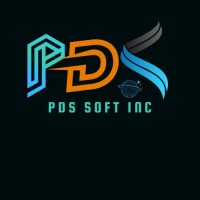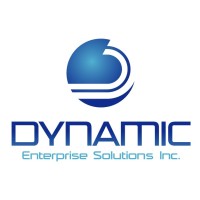

Artificial Intelligence Engineer/ GenAI/LLM Engineer
⭐ - Featured Role | Apply direct with Data Freelance Hub
This role is for an Artificial Intelligence Engineer/GenAI/LLM Engineer, remote, long-term contract. Key skills include Deep Learning, NLP, PyTorch, TensorFlow, and experience with LLMOps. Familiarity with utility-specific content and advanced fine-tuning techniques is required.
🌎 - Country
United States
💱 - Currency
$ USD
-
💰 - Day rate
-
🗓️ - Date discovered
August 28, 2025
🕒 - Project duration
Unknown
-
🏝️ - Location type
Remote
-
📄 - Contract type
Unknown
-
🔒 - Security clearance
Unknown
-
📍 - Location detailed
Oakland, CA
-
🧠 - Skills detailed
#Hugging Face #Monitoring #Mathematics #Documentation #Deep Learning #Compliance #AI (Artificial Intelligence) #PyTorch #Transformers #Databases #Data Pipeline #Libraries #"ETL (Extract #Transform #Load)" #TensorFlow #NLP (Natural Language Processing)
Role description
GenAI/LLM Engineer
Location: Remote
Duration: Long Term
Job Description:
• Implement and optimize advanced fine-tuning approaches (LoRA, PEFT, QLoRA) to adapt foundation models to PG&E's domain
• Develop systematic prompt engineering methodologies specific to utility operations, regulatory compliance, and technical documentation
• Create reusable prompt templates and libraries to standardize interactions across multiple LLM applications and use cases
• Implement prompt testing frameworks to quantitatively evaluate and iteratively improve prompt effectiveness
• Establish prompt versioning systems and governance to maintain consistency and quality across applications
• Apply model customization techniques like knowledge distillation, quantization, and pruning to reduce memory footprint and inference costs
• Tackle memory constraints using techniques such as sharded data parallelism, GPU offloading, or CPU+GPU hybrid approaches
• Build robust retrieval-augmented generation (RAG) pipelines with vector databases, embedding pipelines, and optimized chunking strategies
• Design advanced prompting strategies including chain-of-thought reasoning, conversation orchestration, and agent-based approaches
• Collaborate with the MLOps engineer to ensure models are efficiently deployed, monitored, and retrained as needed
• Deep Learning & NLP: Proficiency with PyTorch/TensorFlow, Hugging Face Transformers, DSPy, and advanced LLM training techniques
• GPU/Hardware Knowledge: Experience with multi-GPU training, memory optimization, and parallelization strategies
• LLMOps: Familiarity with workflows for maintaining LLM-based applications in production and monitoring model performance
• Technical Adaptability: Ability to interpret research papers and implement emerging techniques (without necessarily requiring PhD-level mathematics)
• Domain Adaptation: Skills in creating data pipelines for fine-tuning models with utility-specific content "
GenAI/LLM Engineer
Location: Remote
Duration: Long Term
Job Description:
• Implement and optimize advanced fine-tuning approaches (LoRA, PEFT, QLoRA) to adapt foundation models to PG&E's domain
• Develop systematic prompt engineering methodologies specific to utility operations, regulatory compliance, and technical documentation
• Create reusable prompt templates and libraries to standardize interactions across multiple LLM applications and use cases
• Implement prompt testing frameworks to quantitatively evaluate and iteratively improve prompt effectiveness
• Establish prompt versioning systems and governance to maintain consistency and quality across applications
• Apply model customization techniques like knowledge distillation, quantization, and pruning to reduce memory footprint and inference costs
• Tackle memory constraints using techniques such as sharded data parallelism, GPU offloading, or CPU+GPU hybrid approaches
• Build robust retrieval-augmented generation (RAG) pipelines with vector databases, embedding pipelines, and optimized chunking strategies
• Design advanced prompting strategies including chain-of-thought reasoning, conversation orchestration, and agent-based approaches
• Collaborate with the MLOps engineer to ensure models are efficiently deployed, monitored, and retrained as needed
• Deep Learning & NLP: Proficiency with PyTorch/TensorFlow, Hugging Face Transformers, DSPy, and advanced LLM training techniques
• GPU/Hardware Knowledge: Experience with multi-GPU training, memory optimization, and parallelization strategies
• LLMOps: Familiarity with workflows for maintaining LLM-based applications in production and monitoring model performance
• Technical Adaptability: Ability to interpret research papers and implement emerging techniques (without necessarily requiring PhD-level mathematics)
• Domain Adaptation: Skills in creating data pipelines for fine-tuning models with utility-specific content "




